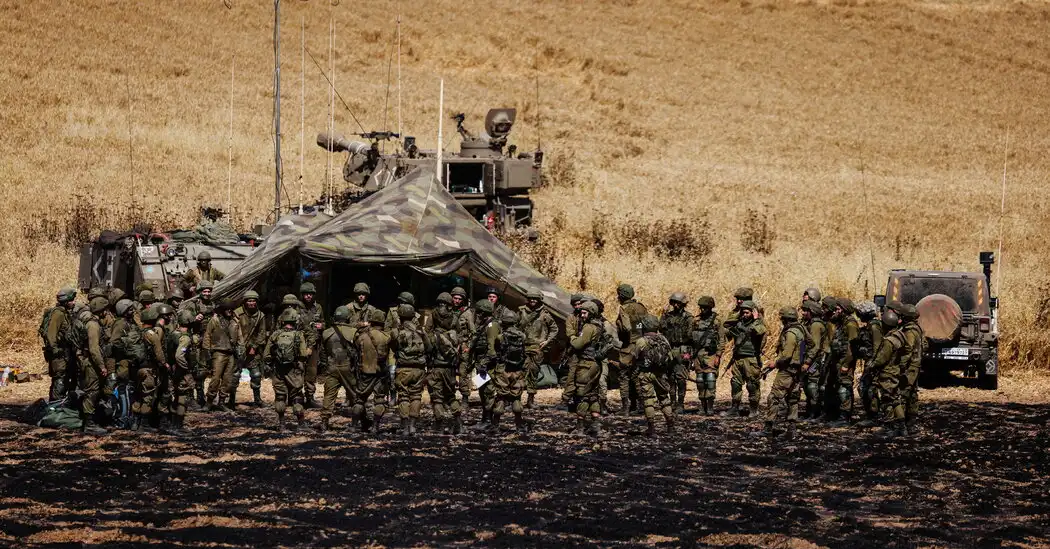In a clear and uncompromising stance, Israeli Prime Minister Benjamin Netanyahu has issued a dire warning to Hamas, affirming that each member of the Palestinian militant group is considered “a dead man.” This declaration comes in the wake of a surprise attack by Hamas on Saturday, prompting Israel to express its firm intent to “destroy” the group.
Amidst escalating tensions and growing concerns, Israel has adopted a unified strategy to confront Hamas and deal with the ongoing conflict. The emergence of a unity government, led by Prime Minister Netanyahu and key opposition figure Benny Gantz, is a significant development that aims to address the crisis effectively.
Understanding the Unity Government:
Benny Gantz, leader of the National Unity Party and a former Defence Minister and Chief of Staff of the Israel Defence Forces (IDF), joined hands with Prime Minister Netanyahu in a joint statement. Together, they plan to create a five-member “war-management” Cabinet, comprising Netanyahu, current Defence Minister Yoav Gallant, two other top officials as “observers,” and Gantz himself as members. This united government has pledged to focus exclusively on matters related to the ongoing conflict, refraining from passing any unrelated legislation or decisions for the duration of the fighting.
The unexpected unity amidst political divisions underscores the urgency of the situation. The move towards a unity government garnered support from unexpected corners of Israeli politics, uniting previously divided factions. Right-wing extremist leader National Security Minister Itamar Ben Gvir, once hesitant about a unity coalition, now emphasizes the need to secure victory. Justice Minister Yariv Levin and Economy Minister Nir Barkat also voiced their support, underlining the critical necessity of a united front during this challenging time.
Israel’s Determined Response:
Israel, having mobilized an unprecedented number of reservists, is unwavering in its commitment to a forceful offensive against Hamas, which governs the Gaza Strip. This resolve comes after Hamas breached the border fence and launched a multi-pronged assault on Israel.
As the conflict enters its fifth day, casualties continue to mount on both sides, with civilians bearing the brunt of the violence. Hamas’ actions have led to an estimated 150 Israelis held hostage, while Israel responds with an intensified blockade, halting vital supplies to Gaza.
The Humanitarian Concern:
Gaza, heavily reliant on Israel for basic necessities, faces profound repercussions as Israel curtails the entry of crucial provisions. The blockade, coupled with past restrictions, exacerbates the already challenging conditions for the densely populated region.
Since Hamas seized power in 2007, Israel has imposed varying levels of blockade on Gaza, significantly impacting the livelihoods and well-being of its inhabitants. The current escalation only deepens these concerns, underlining the urgent need for a peaceful resolution to the conflict.
In this challenging and critical time, it is essential for all parties involved to prioritize a peaceful resolution that addresses the humanitarian concerns of the people in the region.
In conclusion, Israel’s unity government’s strategy against Hamas is a significant step towards confronting the ongoing conflict effectively. The nation’s commitment to a forceful offensive, supported by unexpected political unity, highlights the urgency of the situation. As the conflict continues, the humanitarian concerns grow, underscoring the need for a peaceful resolution and international support.




